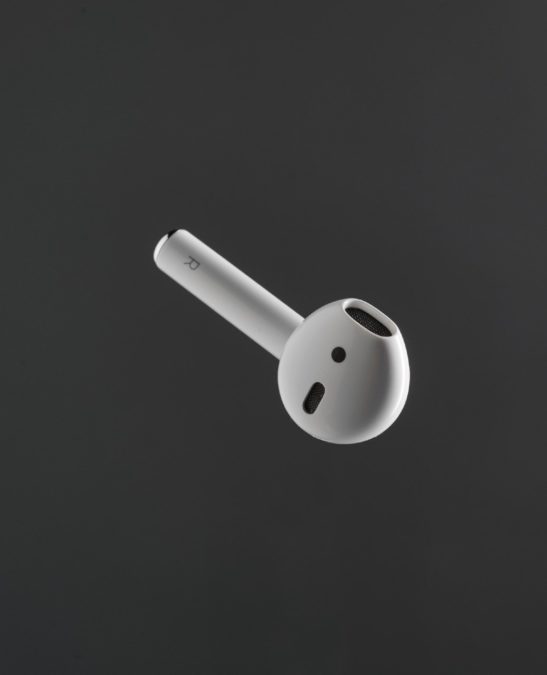Looking at the changes in the technology industry, it can be assumed that the standard Bluetooth has long been recognized as safe. This assumption is incorrect. Some experts who study wireless technologies are concerned about the impact on the health of users …

Original material by Markam Hyde
In 2016 Apple made a splash by releasing new ones iPhone without headphone jacks. Most of the company's competitors, including Google and Samsung, have since followed suit. It is still possible to connect wired headphones to such devices, an adapter will be needed, but abandoning the headphone jack is often viewed as proof of victory Bluetooth in the battle for our ears.
Looking at these changes in the industry, it can be assumed that the standard Bluetooth has long been recognized as safe. This assumption is incorrect. Some experts in the study of wireless technology are concerned about the impact on the health of users.

Jerry Phillips, professor of biochemistry at the University of Colorado at Colorado Springs, says: “My concern about AirPods is that by placing them in the ear canal, the user is exposing the scalp to relatively powerful RF radiation.” He mentions tumors and other processes associated with malfunctioning of cells as potential negative consequences. And those implications are not limited to AirPods. Existing evidence “points to potential health and development concerns from all RF technologies,” Phillips said.
Representatives Apple have already commented on concerns around AirPods, reassuring the public that all safety rules are followed in the manufacture of headphones.
And he is not alone. About 250 scientists from more than 40 countries have signed a petition to the UN and WHO expressing 'serious concern' about non-ionizing electromagnetic fields (EMF), a type of radiation emitted by wireless devices, including those using technology Bluetooth.
“Numerous recent scientific publications have shown that EMF affects living organisms at a level much below international and national regulations,” the petition said. Cancer, neurological disorders, and DNA damage are cited in the study as possible examples of the negative effects of this radiation. It also refers to research by the International Agency for Research on Cancer, which identified EMF radiation as 'potentially oncogenic' in humans.

In addition to Phillips, one of the American scientists who signed the petition is Joel Moskovitz, director of the Center for Family and Public Health at the University of California at Berkeley. There isn't much research on the technology itself Bluetooth yet, but broader EMF studies show that the types of radiation emitted by wireless headphones and earplugs can have negative health effects. He also mentions some of the health threats from the petition and says we need to be more careful about such devices until more research is done: “We are, by and large, going blind.”
Other experts disagree and believe that when all the information on EMF is collected and analyzed, it will become clear that there is no harm. “There are many thousands of papers already written, varying in quality and health concerns, and pointing in completely different directions,” retorts Kenneth Foster, a professor of bioengineering at the University of Pennsylvania who studies the effects of radiation from wireless devices on humans. It is possible to selectively cite studies that show Bluetooth and other wireless technologies poorly, but 'the data is implausible'.
Foster points out that WHO and other health organizations have reviewed the literature on Bluetooth and other wireless technologies and have found 'no clear evidence of a health hazard with exposure levels below international standards.'
But some researchers have questioned the conventional wisdom that high doses of EMF are by definition more dangerous. In a 2018 article titled 'Wi-Fi is a Serious Threat to Human Health' by Martin Poll, Emeritus Professor of Biochemistry at Washington State University? substantiates the opinion that the potential harm to health from the device depends not only on the strength or intensity of the EMF signals.

One of the big problems, he says, has to do with electromagnetic 'impulses', the rapid bursts of electromagnetic energy through which devices communicate with each other. 'We repeated the studies that clearly showed that pulsed magnetic fields are in most cases more biologically active than non-pulsed fields of the same intensity. All wireless communication devices transmit data, at least partially, through such pulses, and the smarter they are, the more they transmit these pulses. ' He laments that many health authorities are simply ignoring these factors. “So-called safety precautions cannot predict biological consequences,” says Poll.
Phillips echoes this opinion. Modern standards of exposure from wireless technologies are deliberately 'divorced from reality' described in the study: 'We still do not have an understanding of what is included in the radiation dose or what parameters of radiation are important. More research is needed. ' Moskovitz believes wired headphones with headset functionality can be an effective and easy way to reduce exposure to telephone EMF. “The fact that people are addicted to these devices and love them makes the problem incredibly complicated, as they will deny any information about radiation exposure, which puts them at risk. The irony is that we don't really need these devices. '
Original material by Markam Hyde
I sat, translated the text in Bluetooth – headphones and tried to remember if my state of health had somehow changed over this year. I definitely became calmer, because I do not hear people around in transport, neighbors of the house and rare noisy characters on the street. Of course, the long-term effect is still difficult to assess, especially judging by the disagreements among researchers. Am I prepared for the risks described? It's hard to say, but without ANC in Moscow it's not easy for me, that's a fact.
Another thing is the quality of headphones, because inexpensive models at least have a negative effect on hearing and they often hurt the ears themselves. So you need to understand what a particular person needs and choose options based on preferences and scenarios. Wired headphones won't disappear so quickly, but in the future they will most likely become the lot of audiophiles. Do you agree?
